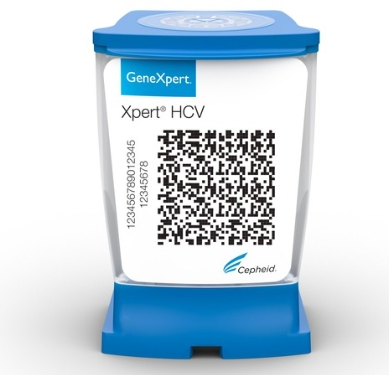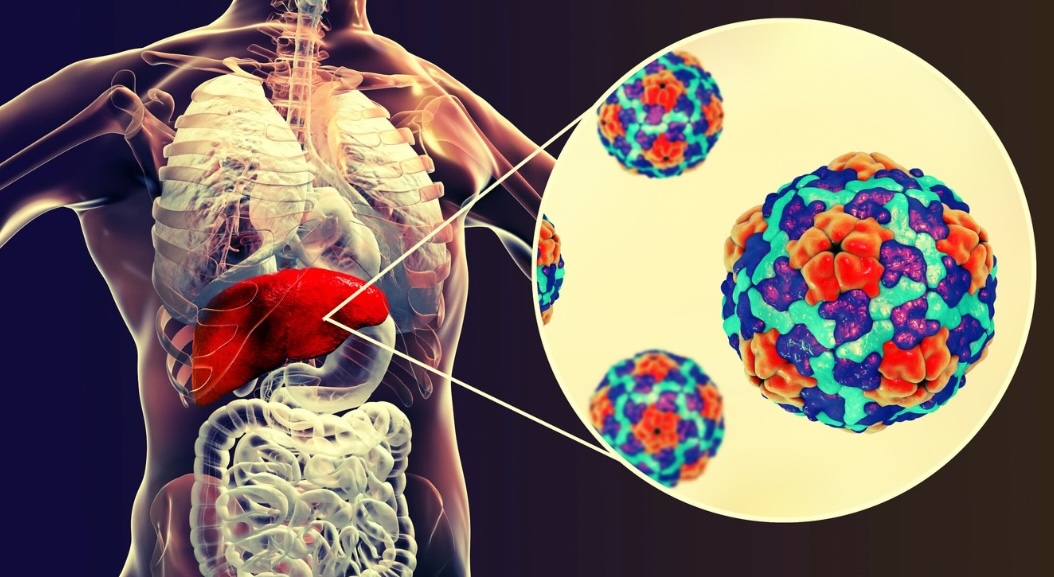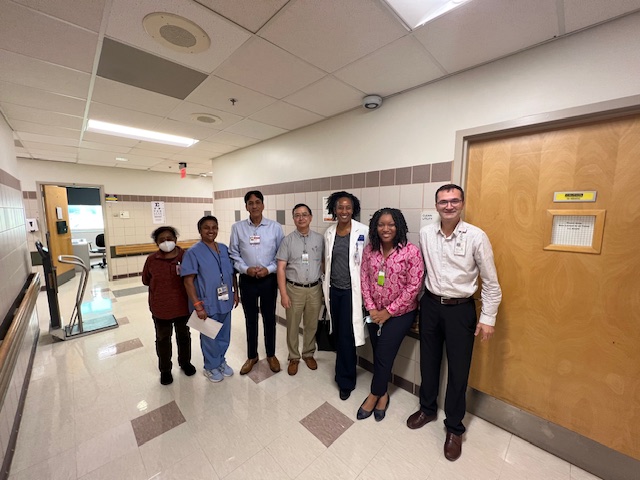Emory University and Grady Health System clinicians, researchers and staff have played a pivotal role in testing and conducting clinical studies related to the first FDA-authorized point-of-care hepatitis C (HCV) test. The novel test will enable a person to be tested, and if positive for HCV, quickly connect to care and potentially begin life-saving treatment, all in a singular visit.
HCV point-of-care test
An estimated 4 million people are infected with HCV nationwide, and while there is no vaccine for the virus, it can be treated and cured with antivirals. Currently, diagnosing and treating patients entails multiple tests and follow-up visits. These additional steps pose challenges to patients and create disruptions in the continuum of care, leading to a lack of diagnosis and administered treatments.
But now, the newly available HCV test will revolutionize how clinicians manage the disease.
“Having this device removes so many barriers that prevent people from being diagnosed with hepatitis C. Increasing how quickly someone receives a diagnosis will enable us to cure and prevent more people from dying. It’s definitely a game changer,” says Shelly-Ann Fluker, MD, a professor in the Division of General Internal Medicine in the Department of Medicine at Emory University’s School of Medicine. “The faculty, residents, and staff really embraced the project — everyone was so enthusiastic about their ability to contribute to such important work that we knew would directly impact our own patients, as well as patients nationwide.”
Emory and Grady teams became involved in evaluating and testing the diagnostic in the fall of 2023 as part of the National Institutes of Health Rapid Acceleration of Diagnostics (RADx) Tech test validation center.
Emory laboratory teams, under the direction of Anuradha Rao, PhD, assistant professor in Emory’s Department of Pediatrics, performed several experiments to de-risk the technology, performed independent verification of the test’s performance and provided hundreds of critical line data points used in Cepheid’s submission to the FDA.
Teams at Grady Liver Clinic, under the direction of Lesley Miller, MD, and Fluker, director and associate director of the Grady Liver Clinic, respectively, performed an initial clinical study of individuals to improve upon the clinical workflow, and subsequently served as one of the 15 sites enrolling in the nationwide clinical trial.
One step closer to eliminating HCV
HCV is the leading cause for the need for liver transplants in the nation and can lead to liver failure, cancer and even death. 
“The Grady Liver Clinic is a very busy center where we see and treat several hundred people with hepatitis C virus each year. So not only did we have the experience, but we also had the right population,” says Miller. “We are tremendously grateful to all the patients who enthusiastically embraced participation. We are indebted to the research teams at Emory and Grady, the participants in the study, our faculty and clinic staff, and Grady administration for supporting the work. It wouldn’t have happened without their support of the Liver Clinic.”
The market authorization of the Xpert HCV test marks a significant step toward ending liver cancer, a component of President Biden’s Cancer Moonshot. It also supports U.S. Department of Health and Human Services’ five-year initiative to eliminate HCV through the expansion of testing, treatment, prevention and monitoring.
The RADx Tech Program in Atlanta
The National Institutes of Health (NIH) launched and funded the initiative in 2020 as a response to the COVID-19 pandemic. RADx Tech, and the associated Independent Test Assessment Program (ITAP), support entities and teams in the development of new diagnostic technologies. While RADx Tech and ITAP were originally focused solely on COVID-19 diagnostics, the programs have now expanded to include programs for a variety of interests, such as mpox, maternal health and HCV.
“Our NIH-funded Atlanta Center for Microsystems Engineered Point-of-Care Technologies (ACME POCT), has been proud to serve the country through the RADx Tech and ITAP programs,” says Wilbur A. Lam, MD, PhD, associate dean of innovation at Emory’s School of Medicine and principal investigator over the RADx program at Emory, Georgia Tech, and Children’s Healthcare of Atlanta. “We were honored to continue our role as the validation center for this important hepatitis C work.”
Typically, analytical and clinical studies needed to bring a de novo device to regulatory approval can take several years. With the infrastructure established in Atlanta as part of the RADx Tech and ITAP programs, much of the work was able to be conducted and completed in a matter of months.
“Because of our dedicated, multi-disciplinary teams here at ACME who have been part of our test validation center for the last four years, we are able to rapidly pivot to new projects,” says Lam. “In this case, for hepatitis C, our teams jumped in and worked non-stop, ultimately helping this diagnostic gain regulatory approval in record time, which will take us one step closer to hepatitis C elimination that much sooner.”
This work was supported by the National Institutes of Health (contract award numbers 75N92022D00015/75N92022F00003, 75N92022D00013/75N92022F00004, 75N92022D00014/75N92023F00001) as part of the Rapid Acceleration of Diagnostics (RADx) initiative. Its contents are solely the responsibility of the authors and do not necessarily represent the official views of the NIH.

The Emory and Grady clinical teams at the Grady Liver Clinic.

